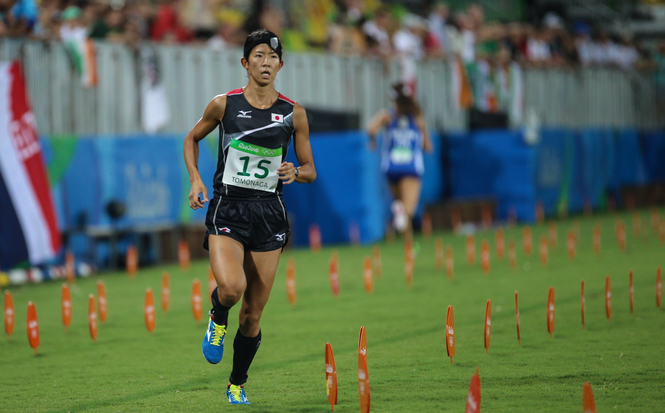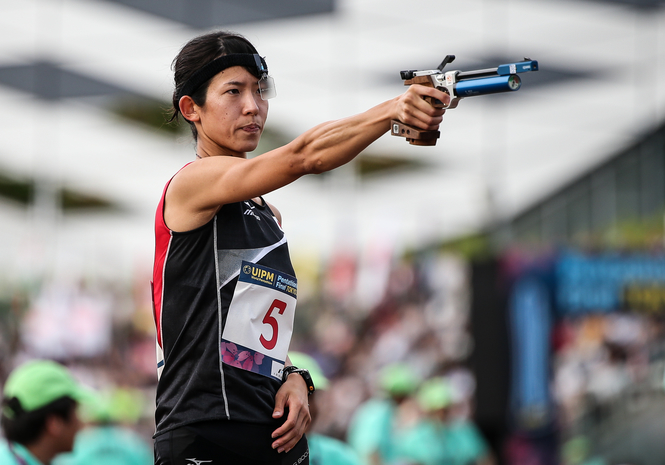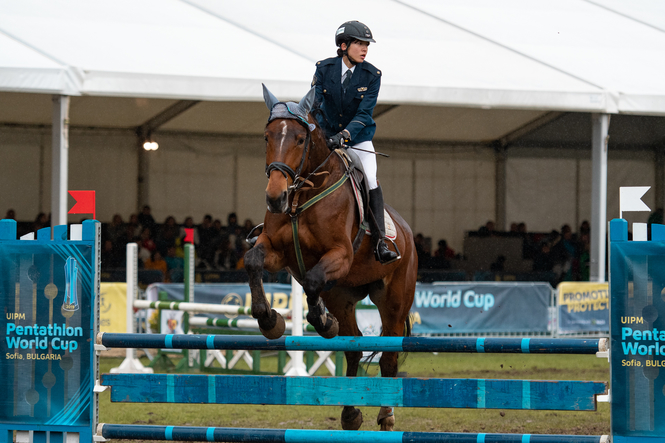Road to Tokyo: Natsumi Takamiya (JPN) savours prospect of final Olympics on home soil
In 2012, a 21-year-old trainee police officer named Natsumi Tomonaga took up the Modern Pentathlon.
One year later, fate added vindication to that decision as her home city of Tokyo was awarded the right to host the 2020 Olympic and Paralympic Games.
Few athletes can resist the lure of competing in a home Olympics. All being well, in August 2021, the 29-year-old (now Natsumi Takamiya) will compete at the highest level for a second time before bowing out to concentrate on her work with the Metropolitan Police Department.
In the latest #RoadToTokyo interview, Natsumi Takamiya looks back at her journey in Modern Pentathlon and looks ahead to the rescheduled Games and the captivating possibility of competing in front of a home crowd at the Tokyo Stadium.
Q: How did it feel in 2019 when you secured a quota place for Japan at the Tokyo Olympics by winning silver at the Asia Championships and Olympic Qualifier?
A: I felt relieved to secure a quota place for Japan at the Tokyo Olympics, although I wanted to win gold at the Asia Championships and Olympic Qualifier.

Q: You finished 12th at Rio 2016 – how would you describe your first Olympic experience?
A: My first Olympic was a very precious experience in my lifetime. Looking back, there were a lot of struggles, but I was grateful for such an opportunity. I am honoured and proud that I was able to compete with great athletes in a wonderful venue.
Q: What are your thoughts on the Olympics being postponed until 2021?
A: I was shocked by the news of the postponement because I intended to retire as an athlete after the Tokyo Olympics. It was hard for me to lose the big target of my athlete career in such a way.
Now I hope the COVID-19 pandemic will end as soon as possible. I would like to express my deepest sympathies to those affected by the COVID-19 Coronavrius and their families.
Q: If selected to represent Japan at Tokyo 2020 in 2021, what will it mean for you to participate in a ‘home Olympics’?
A: It would be the best stage and a precious experience for me to participate in Tokyo 2020 in 2021. As a home athlete there would be a lot of enthusiastic support from local spectators and this would help me to obtain extra power.
Also, I would like to show my gratitude to everyone who has supported me, including those who could not come to Rio 2016 with me. The Tokyo Olympics would be an opportunity to show appreciation through my performance and spread smiles and joy to the world.

Q: Will you try to prepare in any different ways compared to Rio 2016?
A: For Rio 2016 it was just a lot of training and momentum. However, for Tokyo, I want to focus on physical training systematically to build a solid body.
Q: How have you been keeping up your training during the Coronavirus crisis?
A: I live in the capital city Tokyo, so training was very restricted. I could not train – especially in Riding, Swimming and Fencing at all – for two to three months. Meanwhile, I mainly worked on maintaining physical strength and core training.
Q: What has been the most challenging part?
A: Keeping motivation is still hard. My passion for the Olympics went away and I lost my concentration. Then after restarting training, I was suffering from injuries continuously. Because of a cervical herniated disc, any training was impossible for a while but recently I became able to train again little by little.

Q: When, and why, did you become a modern pentathlete?
A: Eight years ago, when I was training as a police officer, the score of my sports text was highly commended because of my experience of Swimming and Running and I was invited to join the Modern Pentathlon team.
At that time, my mother was full of sorrow since my father had passed away from illness. I strongly wanted to encourage her and send love by reaching the Olympic Games, and so I decided to become a pentathlete when I was 21 years old.
Q: What motivates you in training?
A: The big support of those people around me, and above all, a strong desire to stand on the podium at the Olympics.
Q: Describe yourself as an athlete in three words.
A: Gratitude, good luck, challenge

Q: Who are your role models in sport, and in life?
A: Mao Asada, former Japanese figure skater and Olympic silver medallist. She encouraged me to continue to take on challenges until the end.
Q: What is your ultimate ambition in Modern Pentathlon?
A: Winning a gold medal at the Olympics. And I would love to thank everyone who has supported me and the athletes I have ever met walking this way together. And finally, to finish my Modern Pentathlon career with a smile :)



